
The UNESCO-UNEVOC International Centre: Who We Are | What We Do | Working With Us | Get in Touch
The UNEVOC Network: Learn About the Network | UNEVOC Network Directory
For Members: UNEVOC Centre Dashboard
Thematic Areas: Inclusion and Youth | Digital Transformation | Private Sector Engagement | SDGs and Greening TVET
Our Key Programmes & Projects: BILT: Bridging Innovation and Learning in TVET | Building TVET resilience | TVET Leadership Programme | WYSD: World Youth Skills Day
Past Activities: COVID-19 response | i-hubs project | TVET Global Forums | Virtual Conferences | YEM Knowledge Portal
Our Services & Resources: Publications | TVET Forum | TVET Country Profiles | TVETipedia Glossary | Innovative and Promising Practices | Toolkits for TVET Providers | Entrepreneurial Learning Guide
Events: Major TVET Events | UNEVOC Network News
Nine new institutions have joined the UNEVOC Network this year. Find out who they are:
 The Human Resource Development Council (HRDC) is the former Tertiary Education Council of Botswana. Established in 2002, it was transformed into the Human Resource Development Council in 2013. Its mandate is the planning and funding for education and training in Botswana. It is a semi-autonomous (parastatal) body established under the Ministry of Education and Skills Development and is responsible for coordinating the implementation of the National Human Resource Development Strategy (NHRDS). More information
The Human Resource Development Council (HRDC) is the former Tertiary Education Council of Botswana. Established in 2002, it was transformed into the Human Resource Development Council in 2013. Its mandate is the planning and funding for education and training in Botswana. It is a semi-autonomous (parastatal) body established under the Ministry of Education and Skills Development and is responsible for coordinating the implementation of the National Human Resource Development Strategy (NHRDS). More information
 Founded in 1942, SENAI is one of the most important institutions in the country providing formal training for Brazilian industry professionals. Currently, SENAI has 25.000 employees that work to increase competitiveness of the Brazilian industry through technical and vocational education and industrial innovation and technology. With 744 operational units in all 27 states of the country, SENAI offers more than 1800 courses and in 2013 had over 3,4 million enrollments in vocational and technological training courses. More information
Founded in 1942, SENAI is one of the most important institutions in the country providing formal training for Brazilian industry professionals. Currently, SENAI has 25.000 employees that work to increase competitiveness of the Brazilian industry through technical and vocational education and industrial innovation and technology. With 744 operational units in all 27 states of the country, SENAI offers more than 1800 courses and in 2013 had over 3,4 million enrollments in vocational and technological training courses. More information
 The Institute of Brunei Technical Education is a new autonomous post-secondary educational institution that replaces the Department of Technical Education. It offers full-time and Dual System Apprenticeship programmes through its seven institutions and offers Continuing Education and Training (CET) programmes for adult learners. Its mission is to produce highly skilled and employable graduates that meet stakeholders’ expectations through a holistic learning environment. More information
The Institute of Brunei Technical Education is a new autonomous post-secondary educational institution that replaces the Department of Technical Education. It offers full-time and Dual System Apprenticeship programmes through its seven institutions and offers Continuing Education and Training (CET) programmes for adult learners. Its mission is to produce highly skilled and employable graduates that meet stakeholders’ expectations through a holistic learning environment. More information
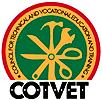 The Council for Technical and Vocational Education and Training (COTVET) is a national body set up by an Act of Parliament of the Republic of Ghana to coordinate and oversee all aspects of technical and vocational training in the country. Its mission is to coordinate and oversee a TVET system that produces a globally competitive workforce through quality-oriented and demand-driven learning for national development. More information
The Council for Technical and Vocational Education and Training (COTVET) is a national body set up by an Act of Parliament of the Republic of Ghana to coordinate and oversee all aspects of technical and vocational training in the country. Its mission is to coordinate and oversee a TVET system that produces a globally competitive workforce through quality-oriented and demand-driven learning for national development. More information
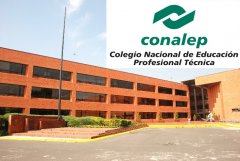 CONALEP is a leading institution in the training of professional technicians and Bachelors in Mexico, offering recognized quality programmes based on the Mexican dual model. Graduates gain relevant job skills and social values that allow them to be competitive in the labour market and pursue post-secondary studies. CONALEP's mission is to offer competency-based training for Professional Technicians and Professional Technician Bachelors (Bachiller). It trains and assesses the labour competencies needed by the production sector of the country. More information
CONALEP is a leading institution in the training of professional technicians and Bachelors in Mexico, offering recognized quality programmes based on the Mexican dual model. Graduates gain relevant job skills and social values that allow them to be competitive in the labour market and pursue post-secondary studies. CONALEP's mission is to offer competency-based training for Professional Technicians and Professional Technician Bachelors (Bachiller). It trains and assesses the labour competencies needed by the production sector of the country. More information
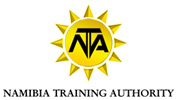 As the regulating body of the TVET sector in Namibia, NTA is entrusted with the effective regulation of TVET provision in Namibia. NTA contributes to the establishment of an effective and sustainable system of skills formation aligned with the needs of the labour market that provides the skills required for accelerated development. In this system, competencies are developed that are needed for productive work and increased standards of living. More information
As the regulating body of the TVET sector in Namibia, NTA is entrusted with the effective regulation of TVET provision in Namibia. NTA contributes to the establishment of an effective and sustainable system of skills formation aligned with the needs of the labour market that provides the skills required for accelerated development. In this system, competencies are developed that are needed for productive work and increased standards of living. More information
 Arusha Technical College is a Training Institution fully owned by the Government with more than 70 per cent of the students enrolled to technician courses leading to the award of the Ordinary Diploma. Currently the College covers 40% of the running costs through income-generated from short courses and consultancy. Its mission is to provide competency-based technical education and training and to carry out research and consultancy in science and technology for socio-economic development. More information
Arusha Technical College is a Training Institution fully owned by the Government with more than 70 per cent of the students enrolled to technician courses leading to the award of the Ordinary Diploma. Currently the College covers 40% of the running costs through income-generated from short courses and consultancy. Its mission is to provide competency-based technical education and training and to carry out research and consultancy in science and technology for socio-economic development. More information
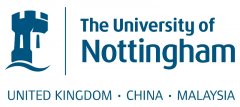 CIER is one of six research centres in the School of Education, University of Nottingham, currently ranked in the top 30 education research organizations globally and top 3 in the UK. It contains the oldest chair of Adult Education in the UK and the UNESCO Chair on the Political Economy of Education. Its research focuses on the current and historical role of higher, adult and vocational education in promoting human development; and the place of education in the global development agenda. Its staff has conducted research in all regions of the world and worked closely with a range of international organizations. More information
CIER is one of six research centres in the School of Education, University of Nottingham, currently ranked in the top 30 education research organizations globally and top 3 in the UK. It contains the oldest chair of Adult Education in the UK and the UNESCO Chair on the Political Economy of Education. Its research focuses on the current and historical role of higher, adult and vocational education in promoting human development; and the place of education in the global development agenda. Its staff has conducted research in all regions of the world and worked closely with a range of international organizations. More information
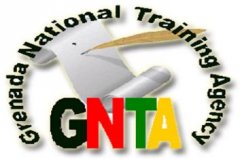 Established in 2009, the National Training Agency (NTA) is responsible for overseeing, designing, monitoring, promoting and establishing Technical and Vocational Education and Training (TVET) to meet Grenada’s skills development needs. The NTA aims to develop Grenada's workforce to enhance their employability and improve country's competitiveness. The NTA reports to the Grenada Council for Technical and Vocational Education and Training (GCTVET). More information
Established in 2009, the National Training Agency (NTA) is responsible for overseeing, designing, monitoring, promoting and establishing Technical and Vocational Education and Training (TVET) to meet Grenada’s skills development needs. The NTA aims to develop Grenada's workforce to enhance their employability and improve country's competitiveness. The NTA reports to the Grenada Council for Technical and Vocational Education and Training (GCTVET). More information